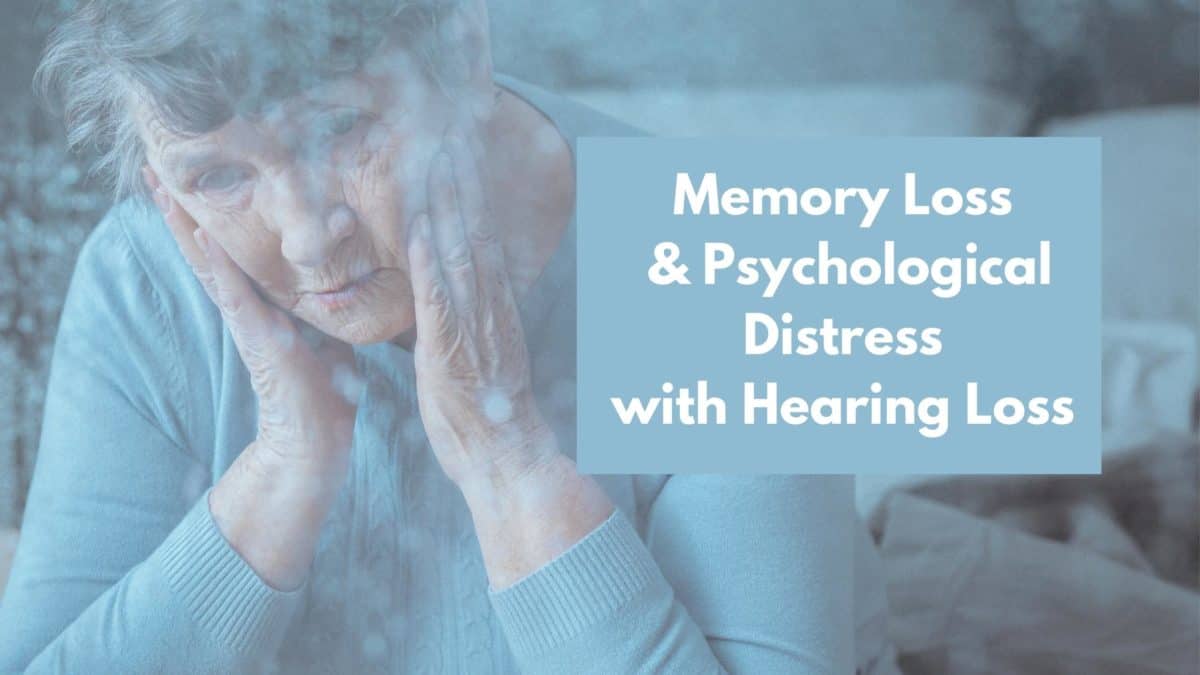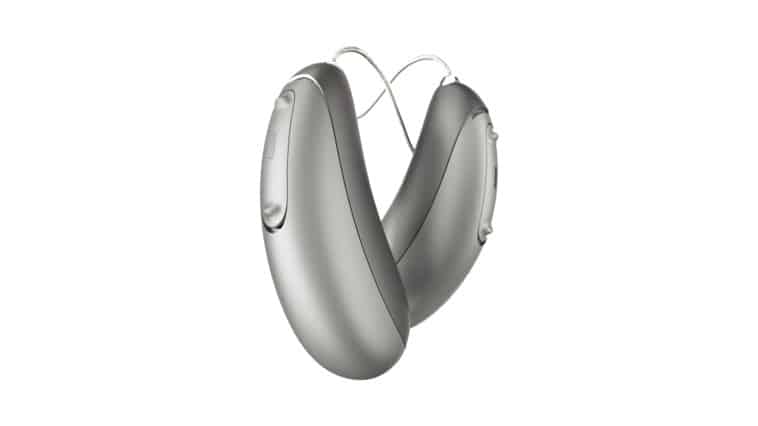0% financing available. Up to 3-year loss and damage guarantee.

Memory Loss & Psychological Distress with Hearing Loss
- Navigating the Conversation: The Significance of Thoughtful Disclosure in Hearing Loss - December 10, 2023
- The Sound of Dreams: Understanding How Hearing Loss Impacts Dreaming - November 7, 2023
- Traveling Effectively with Hearing Aids - October 16, 2023
If you or a loved one has hearing loss, you’ve started to realize that hearing loss isn’t just about having a hard time hearing. You’ve noticed that you struggle to follow conversations, can’t hear in places with background noise, and don’t enjoy watching TV anymore.
But that’s not all you’ve noticed. You may realize that you’re having a harder time remembering things, or that you’re feeling more lonely or depressed than before. If this is your experience, you’re not alone! Recent studies have found that hearing loss is associated with both memory loss and psychological distress.
What Does the Research Show?
A group of researchers at the university of Tsukuba in Japan were very interested in how hearing loss affects memory and mental health. Their 2019 study demonstrates exactly how hearing loss is linked to memory loss and psychological distress. They collected self-reported data from more than 130,000 older adults, and looked at the associations between hearing loss, memory, and the mind. They found that hearing loss is closely linked to both memory loss and psychological distress.
Hearing Loss and Memory Loss
You may be surprised to learn that this study uncovered a strong link between hearing loss and memory loss. The numbers showed that 37.7% of older adults who had hearing loss also reported memory loss. They reported having a hard time remembering important information or recalling facts. Just to give you an idea of how significant this number is, only 5.2% of older adults with normal hearing said they had memory loss.
Why Does Hearing Loss Lead to Memory Loss?
What’s the link between hearing loss and memory loss? Part of the answer lies in cognitive overload and the mental fatigue that comes with straining to hear. When you have hearing loss, you don’t always have the brain capacity to do other mental tasks like remember where you left your phone or what date you have an appointment.
The other part of it is that you may not have heard the information to begin with. If you’ve been straining to hear and didn’t quite hear all the information you were supposed to remember, you’ll obviously have a hard time remembering this information.
Hearing Loss and Psychological Distress
The 2019 study also asked older adults questions about their mental health. 39.7% of adults with hearing loss reported mental health challenges and psychological distress. On the other hand, only 19.3% of older adults with normal hearing identified mental health concerns.
Why Does Hearing Loss Lead to Psychological Distress?
If you have hearing loss, you’ve probably already experienced some of the psychological distress that’s associated with hearing loss. You have noticed that it’s harder to connect with family and friends when you have a hard time hearing what’s being said. And when you meet with loved ones, you often feel left out of the conversation, feel socially isolated, and feel lonely.
Adults with hearing loss report staying home more often than adults with normal hearing. Many seniors with hearing loss choose to stay home rather than struggle to communicate with friends in crowded or noisy gatherings. These older adults also report having a harder time connecting with their closest loved ones, getting frustrated by how hard it is to communicate. Seniors with hearing loss are far more likely to struggle with stress, anxiety, loneliness, and depression.
How Treating Hearing Loss Can Help
If you’re living with hearing loss, it’s time to treat your hearing loss! When you treat your hearing loss with hearing aids, you’ll notice a few great benefits right away. Hearing aids make it easier for you to hear, and you won’t use so much energy straining to hear. You’ll have more brain power to remember information, and you’ll hear every word in conversation. These factors will reduce your risk of memory loss.
Treating hearing loss will also make it easy to hear conversations. You’ll have no problem connecting with family and friends so you can share all the special moments of life. You won’t feel lonely or isolated, and you can maintain your psychological health.

